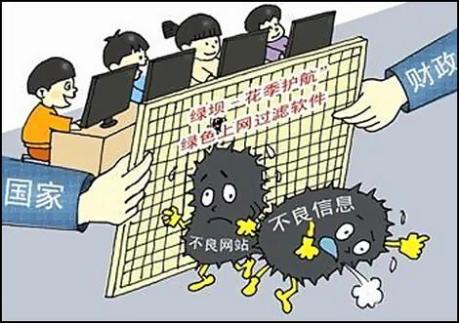Malaysia Mulls Web Controls August 7, 2009
Posted by Joanne KY Teoh in Civic Media, Convergence, Journalism, News, Social Media, Trends.trackback
Malaysia is seeking tough Internet laws to control bloggers and prevent them from spreading “disharmony, chaos, seditious material and lies” on their websites. The move would not be unlike what China and Iran did – blocking sites like Yahoo, Google, Facebook and Twitter when widespread use of social media networking tools to share information about politically explosive events was seen to threaten social order.
In a move described by the opposition as “horror of horrors,” Kuala Lumpur is mulling an Internet filter to block “undesirable” websites, on the grounds of maintaining racial harmony in the multicultural nation. A senior official of the National Security Council (NSC) said such a move is to “keep out pornographic materials and bloggers who inflame racial sentiments.”
Speaking on condition of anonymity to AFP, the official confirmed reports that the coalition government was considering imposing controls – effectively scrapping a 1996 guarantee that it would not censor the Internet. Any move to filter the Internet is against the Multimedia Super Corridor (MSC) Bill of Guarantees.
The Information, Communication and Culture Ministry is commissioning a study which is to be completed in December to filter blogs and websites. A tender is out for companies to help the Malaysian Communications and Multimedia Commission evaluate an Internet filter. According to tender documents seen by The Malaysian Insider, the tenderer is:
• to evaluate the readiness and feasibility for the implementation of Internet filter at Internet gateway level, through assessments on the existing infrastructure and existing products in the market.
• to evaluate and estimate costs for the implementation.
• to study the existing legal framework in addressing content filtering and no censorship issue, including the impacts that are caused by the implementation to Internet users and the Malaysian economy.
The successful tenderer will visit Internet services providers (ISPs) in countries which have some form of Web filters to study the suitability for the Malaysian environment. Among the recommended countries are India, Pakistan, Australia and Hong Kong. It is not known whether these countries use filters or what they are filtering.
Malaysian news websites and blogs are well known for providing alternate views to mainstream news coverage. The vibrant blogosphere has been a thorn in the side of the Barisan Nasional government, which was been in power for more than half a century but was dealt its worst ever results in elections a year ago. Many in the Government have blamed the critical Web culture for Barisan’s losses, and there has been pressure from some quarters to muzzle the medium.
Critics are drawing parallels to China’s aborted ‘Green Dam: project, a plan to introduce Internet filtering software on 1 July on all new computers sold in the country. Beijing had said the Chinese-made Green Dam software would filter out pornography, protecting young people within the world’s largest online population. It backed down after widespread protests by Web users in and outside China.

An image from the official website of the Green Dam-Youth Escort project.
The Chinese software known as “Green Dam Youth Escort” filters image and keyword to block pornographic, violent and politically sensitive content and monitor behaviour. Critics fear it will be used to curb access to information and keep track of users.
Content filtering is outdated. Apart from being largely ineffective, most Web surfers can circumvent filters through proxy servers. If the intent is block unsavory sites, a better and more viable approach is to teach good Web surfing habits and educate the public on the consquences of spreading harmful content.
Related read:
Beat the Web Censorship Phenomenon
China’s Green Dam-Youth Escort net filter draws fire



[…] statement was aimed at allaying fears among opposition groups that the government was mulling an Internet filter to block “undesirable websites”, along the lines of China’s abandoned “Green Dam” […]